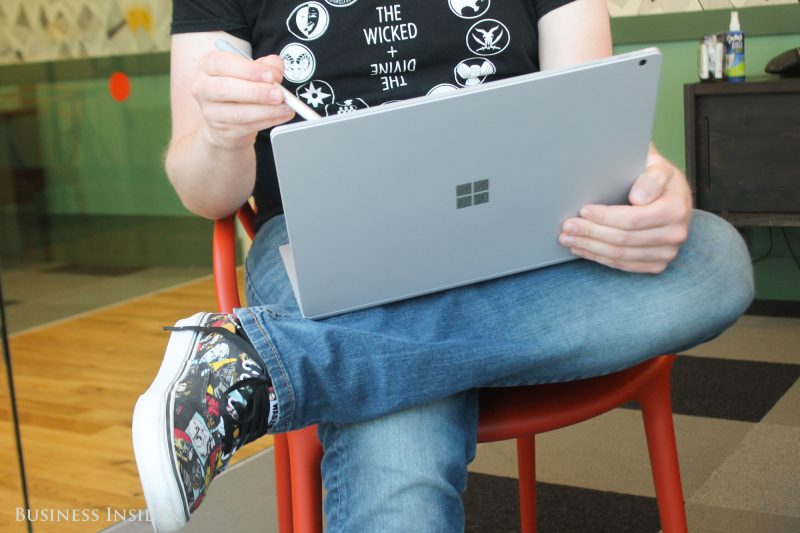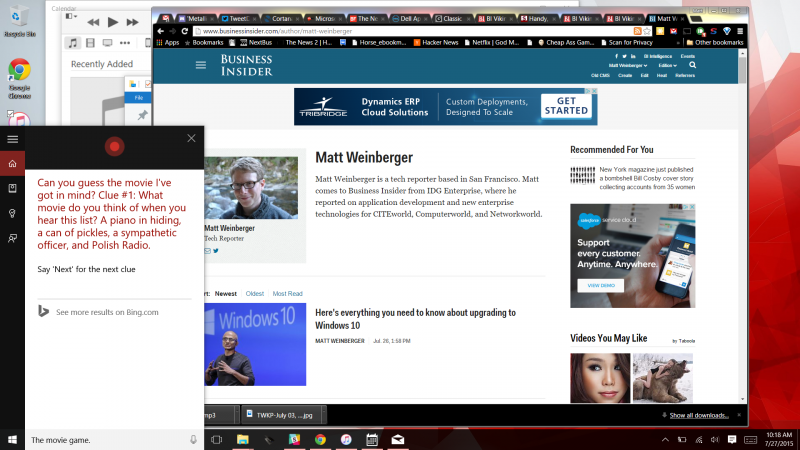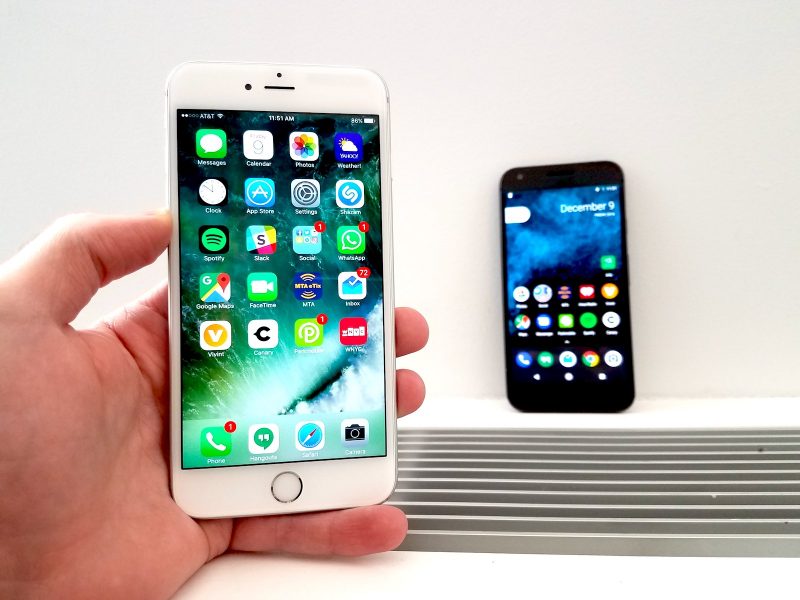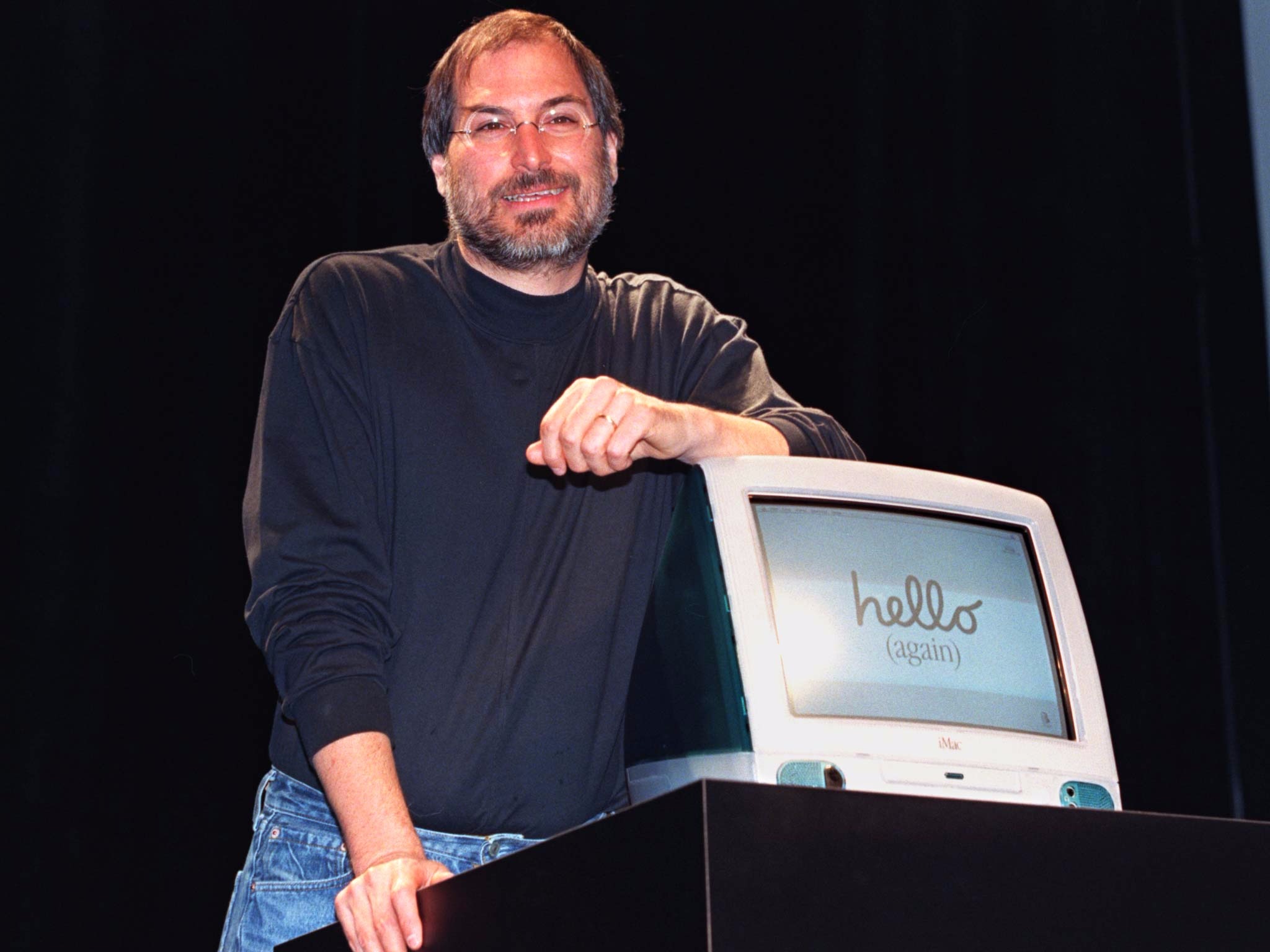When I was a kid in the late 1990s, most everyone I knew had a Windows 95 PC – myself included.
But I had this one friend whose family owned a Mac, one of those multicolored iMacs that were the company’s first big product launch after Steve Jobs returned to the company.
I loved video games, and he loved video games, but he especially loved games on his Mac. Well, one game in particular: “Marathon,” a first-person shooter, which was only for the Mac.
We got into fierce, weeklong arguments about it, in the way that only 10-year-olds can. He said the Mac may have less software, but what was there was simply better. I said the Windows PC was way more versatile. Each of us begrudged the other everything.
Apple stoked the flames with its famous “Get a Mac” ads circa the late 2000s, in which actors John Hodgman and Justin Long played a PC and a Mac, respectively, showing how the PC was old and stodgy but the Mac was young and hip. It was a big part of Apple’s turnaround story – the iMac brought the company back from the brink of disaster, paving the way for the massive success of the iPod and then the iPhone, which turned Apple into the most valuable company in the world. Sometimes, it feels as though those days never ended.
People are still crazy protective of the computers and phones they use. When Business Insider published a piece a little while back saying that Microsoft's Surface Book laptop might be a better buy for most people than the newest MacBook Pro models, we got some hate mail from the Apple crowd.

Well, guess what? The world has moved on. And it's less of a "choice" than ever before.
Because so much of what we do these days is based in the browser and in the cloud, Mac versus PC is no longer a lifestyle decision like it was back when boxed software ruled all.
It's just a matter of taste. Even Microsoft knows it.
And in the exact same way, because of the rise of the App Store model, iPhone versus Android is barely a thing anymore to most people. That's why analysts now believe that iPhone versus Android is "stable" - nobody cares anymore.
The operating system wars are over
After many years of being a Mac faithful, I've been using Windows 10 for the past year and a half or so. I found a lot to like (touch screens, Cortana, window management) and a lot that was annoying (random crashes, peculiar device issues).
Every so often, like today, I switch back to the Mac just to make sure I stay familiar with both sides. And I'm rediscovering that there's a lot to like (performance, stability, iPhone-related superpowers like iMessage) and a lot that's annoying (no touch screen, no Cortana).
They both fill a niche. And they're both successful for their parent companies in their own ways. Macs are highly profitable for Apple, which is still primarily a hardware company. Windows is everywhere, from cheap laptops to premium machines like the Surface Studio, and that's good for Microsoft, which is still mainly a software company.

They can both win. Windows and Apple have their die-hard fans, sure, but they can happily coexist.
The same goes for the mobile platforms, too.
Apple and Google both won. Apple's iPhone is ridiculously profitable, while Android dominates with something like 87% of the market. Each of them got exactly what it wanted from the smartphone business. Apple is selling a lot of profitable iPhones; Google gets its web services and search engine in front of more people.
So while iPhones and Androids may have few features that set them apart, they are still, by and large, running the same major apps, connecting to the same big services. Each phone operating system has its pluses and minuses, but each is pretty much as useful to a vast majority of people as the other.
Maybe you like Instagram on iPhone better than Instagram on Android, but Instagram is still Instagram.
It's all about the service
Indeed, it's service that's going to make the difference going forward.
Switching between a PC and Mac was simple because even my handwritten notes from the Windows 10 computer were stored in Microsoft's Office 365 cloud service. I didn't need to worry about syncing my music between computers because I use the Spotify service on my Mac and PC and iPhone.
This is why Microsoft is making sure Office apps and services are available for the iPhone and Android. It's why Apple is going to bring its new Apple Music service to Android. It's why Google invests so much in the Chrome browser, which runs on both Windows and macOS and in web services like Google Photos.
When the operating system doesn't matter, users are free to choose whatever service suits them, at any time.

It also means that picking a computer or a phone is no longer like getting sorted into a house at Hogwarts. Go where you want, do what you want.
So relax, and remember that you don't owe the big tech companies anything. Let them serve you, in the way that you want.

